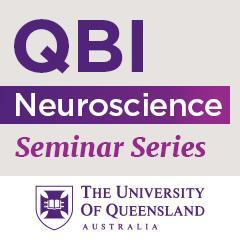Professor Glenda Halliday - University of Sydney, Sydney : "Adaptive structural changes in motor cortex in Parkinson’s disease"

Speaker:
Professor Glenda Halliday
Faculty of Health and Medicine
University of Sydney, NSW
Title: Adaptive structural changes in motor cortex in Parkinson’s disease
Parkinson’s disease (PD) is a movement disorder characterized by the early loss of nigrostriatal dopaminergic pathways producing significant network changes impacting motor coordination. Recently three motor stages of PD have been proposed (a silent period when nigrostriatal loss begins, a prodromal motor period with subtle focal manifestations, and clinical PD) with evidence that motor cortex abnormalities occur to produce clinical PD. We directly assess structural changes in the primary motor cortex and corticospinal tract using parallel analyses of longitudinal clinical and cross-sectional pathological cohorts thought to represent different stages of PD. 18F-FP-CIT positron emission tomography and subtle motor features identified patients with idiopathic rapid-eye-movement sleep behaviour disorder (n=8) that developed prodromal motor signs of PD. Longitudinal diffusion tensor imaging before and after the development of prodromal motor PD showed higher fractional anisotropy in motor cortex and corticospinal tract compared to controls, indicating adaptive changes in motor networks in concert with nigrostriatal dopamine loss. There was no loss of neurons in the motor cortex in early or late pathologically confirmed motor PD compared to controls, although progressive adaptive structural changes were identified. These adaptive changes included early cortical increases in neuronal neurofilament light chain and myelin proteins in association with a-synuclein accumulations, while in the white matter axonal segments devoid of neurofilament light chain and myelin accumulated a-synuclein in association with enlargement of myelinating oligodendrocytes and increased density of precursors. Our results collectively provide evidence of a direct impact of PD on primary motor cortex and its output pathways that begins in the prodromal motor stage of PD with structural changes confirmed in early PD. These adaptive changes become considerable as the disease advances potentially contributing to motor PD.
About Neuroscience Seminars
Neuroscience seminars at the QBI play a major role in the advancement of neuroscience in the Asia-Pacific region. The primary goal of these seminars is to promote excellence in neuroscience through the exchange of ideas, establishing new collaborations and augmenting partnerships already in place.
Seminars in the QBI Auditorium on Level 7 are held on Wednesdays at 12-1pm, which are sometimes simulcast on Zoom (with approval from the speaker). We also occassionally hold seminars from international speakers via Zoom. The days and times of these seminars will vary depending on the time zone of the speaker. Please see each seminar listed below for details.



